



Are virtual influencers less credible than human ones? SEA consumers weigh in
share on
Virtual influencers are not new to the marketing and advertising industry, with brands from F&B to the fashion industries leveraging them to engage audiences. The past few years have seen a rise in virtual influencers from Lil Miquela and Shudu to Margot and Zhi, but how do they fare among consumers compared to their human counterparts? A Milieu survey conducted last December in Southeast Asia with 1,000 respondents each from six countries showed that trust still needs to be built with virtual influencers.
Only 12% of respondents across Singapore, Malaysia, Indonesia, Thailand, Philippines, and Vietnam think they are more credible than human influencers, while 31% think that they are less credible than the latter.
In Singapore, 50% of respondents think virtual influencers are less credible than their human counterparts, while 30% and 22% of Malaysians and Indonesians think the same. Meanwhile, 47% of Indonesians and 39% of Malaysians think virtual influencers are as credible as human influencers. This was only the case for 22% of Singaporeans. Fashion, games, technology, and movies/music suitable to be promoted using virtual influencers.
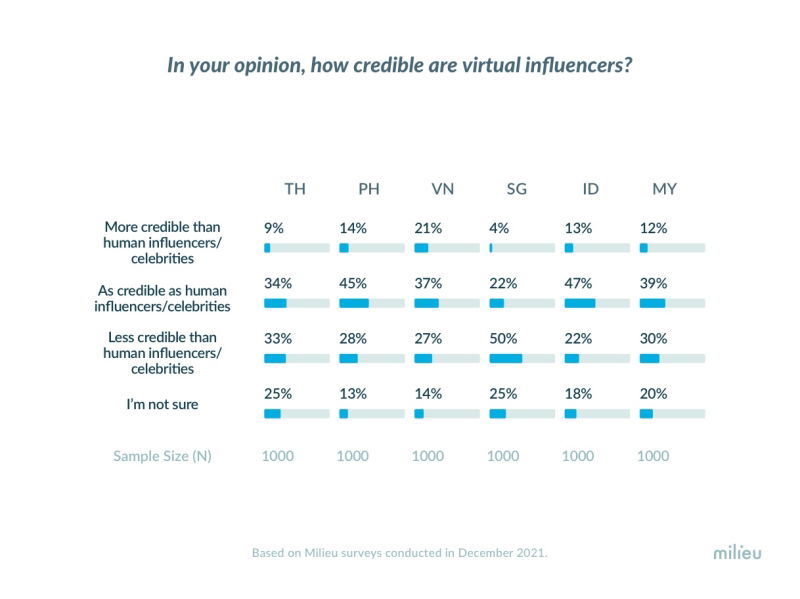
Overall, 77% of Southeast Asians are very or somewhat interested to follow virtual influencers on social media, especially Indonesians, Filipinos, and Vietnamese. On the other hand, 49% of Singaporeans said they were not at all interested in following virtual influencers.
In general, while the respondents do feel that virtual influencers have some influence over the purchase of a product or service 41% of Singaporeans feel they do not wield any influence. That said, user reviews and worth of mouth were still main factors that influenced consumers' purchase decisions compared to virtual influencers.
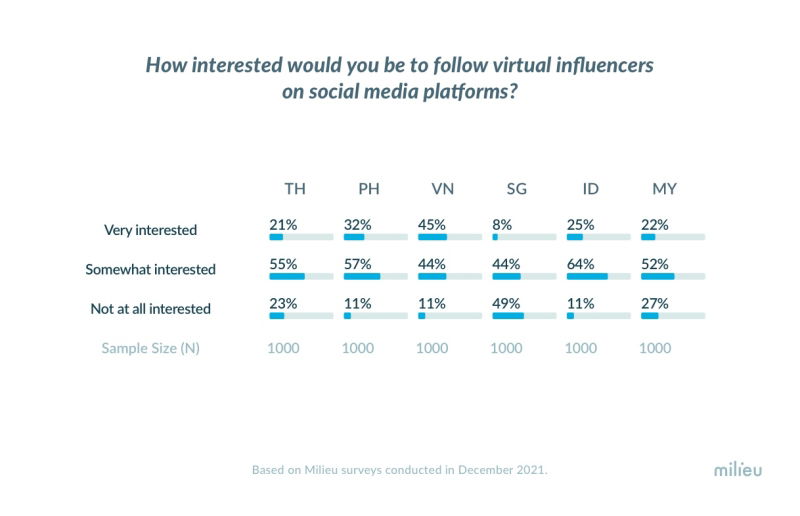
While Singaporeans are not keen to follow virtual influencers online, 41% feel that they are interesting while 38% think of them as weird. Meanwhile, 30% of Singaporeans think virtual influencers are cool.
Likewise, opinions from respondents in other Southeast Asian countries are generally positive. Majority of respondents in Malaysia (49%), Indonesia (42%), Philippines (59%), Thailand (53%) and Vietnam (58%) also think virtual influencers are interesting. Meanwhile, the top three personality traits that consumers find attractive in a virtual influencer are confident, funny and friendly.
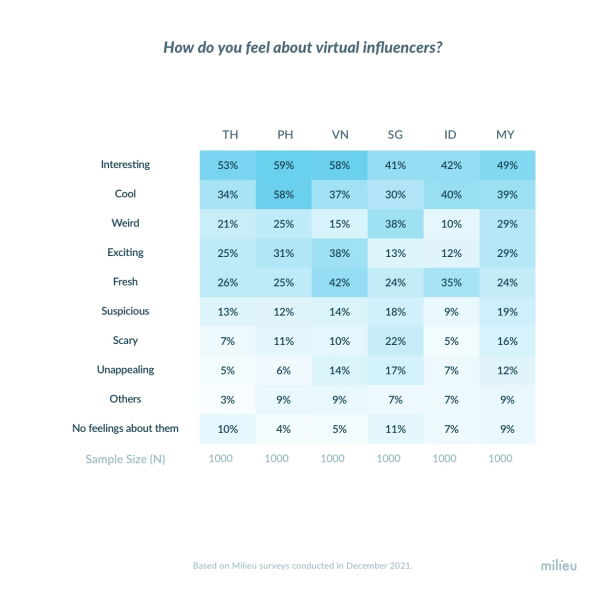
Here's what Southeast Asian consumers think when they visualise the ideal virtual influencer.

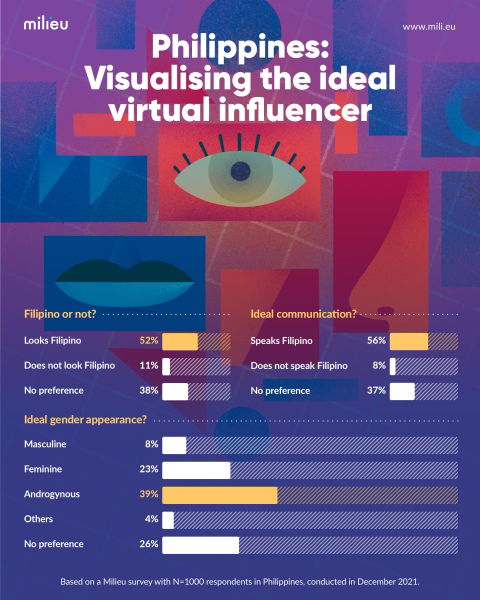
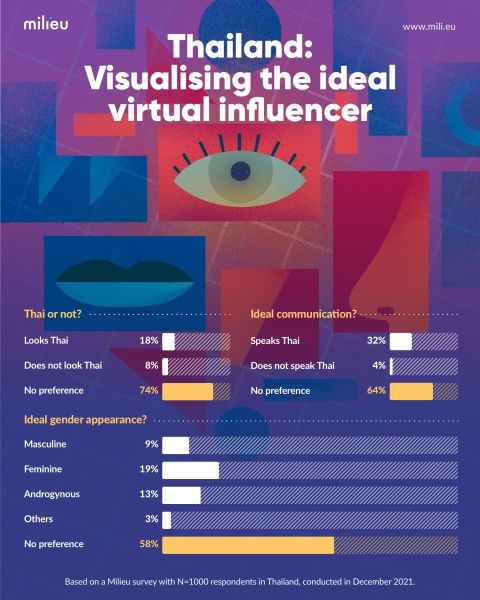
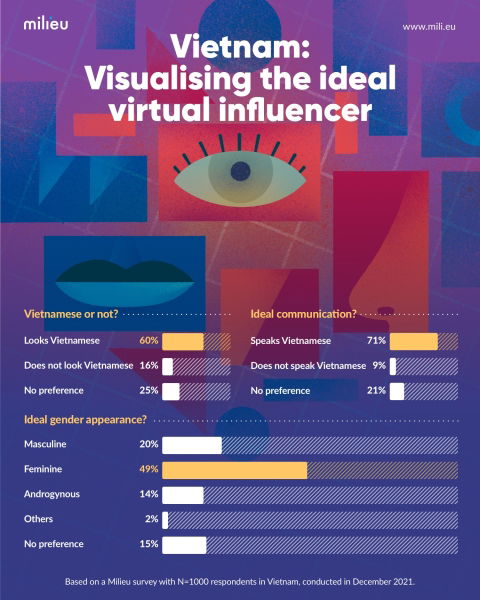
Photo courtesy: 123RF
Related articles:
The rise of the AI influencer: Are they simply easier to work with?
Interview: Why PUMA SEA moved away from virtual influencer Maya
MY virtual influencer Embun Rysa emerges to spread hope during MCO
Are virtual influencers giving real ones a run for their money?
AirAsia takes to the skies with virtual influencer Miss AVA
PUMA brings to life virtual influencer in SEA marketing push
Virtual influencer hype: How long before the trend hits the Malaysian market?
share on
Free newsletter
Get the daily lowdown on Asia's top marketing stories.
We break down the big and messy topics of the day so you're updated on the most important developments in Asia's marketing development – for free.
subscribe now open in new window
